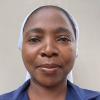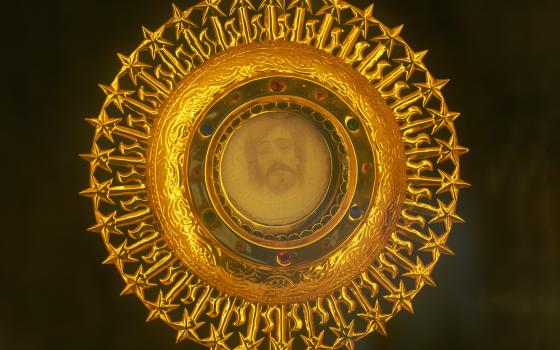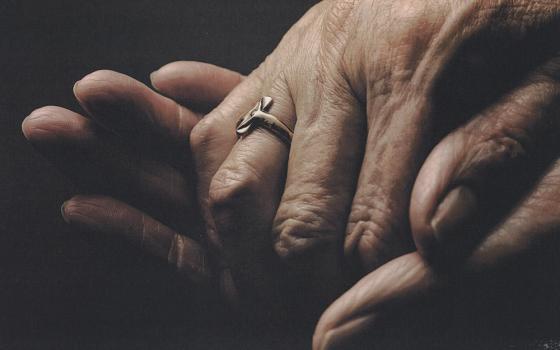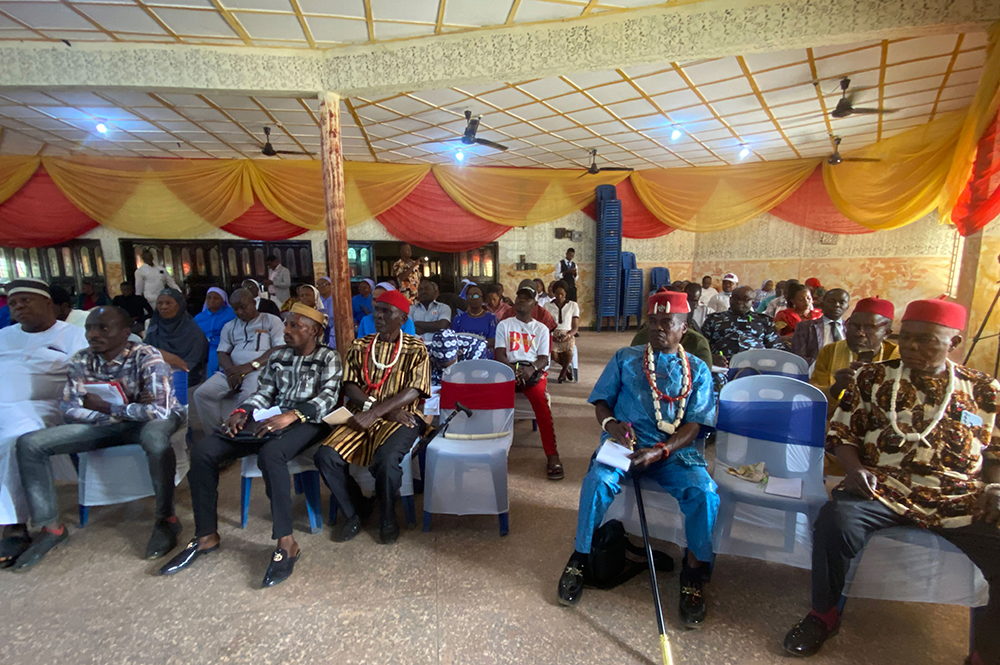
Traditional rulers attend the stakeholders' workshop on domestic servitude and early marriage organized by Africa Faith and Justice Network in collaboration with Dominicans for Justice and Peace Nigeria and Ghana, in Abakaliki, Ebonyi State, Nigeria, in January. (Teresa Anyabuike)
Domestic servitude and early marriage were the issues discussed during our stakeholders' workshop at Bishop Thomas McGettrick Pastoral Center in Abakaliki, Ebonyi state, Nigeria. The workshop was organized by Africa Faith and Justice Network in collaboration with Dominicans for Justice and Peace Nigeria and Ghana in January 2024.
The workshop drew members from different spheres of life — religious sisters from different congregations, Ministry of Women Affairs and Social Development, Ministry of Health, traditional rulers, Child Protection Network, Ministry of Justice and religious leaders (Christians and Muslims).
I was very pleased with the turnout at the stakeholders' workshop because those invited were the ones to carry our message of sensitization on the danger of domestic servitude and early marriage home to their people. We shared some of our stories of how young girls and boys go to different places to work as house helps and they are used as slaves. Most of them don't have the opportunity of going to school nor leaving the house for a break. Some lost their lives in the process. This is contrary to what the victims were told by their masters or mistresses before they are taken from parents or guardians.
Advertisement
Some of the participants were not happy with the situation and promised to educate their people as part of their action plans from the workshop. They set up a committee so as to carry out their plans effectively. The traditional rulers whose communities are where people come to take children said that they will take precautionary measures to find out where their children are taken, and monitor their wellbeing and the promises made to parents and guardians. I thought it was a welcome gesture from them, since most parents are oblivious of where their children are when they are taken.
The perpetrators come with sugar-coated tongues to deceive the parents and the children. They promise to send these children to school and take proper care of them as their own children. They end up maltreating them, making them do all the house chores and eat virtually nothing a whole day, and most end up being beaten or molested by their masters or mistresses. I feel so sad hearing these tales of how some people treat those they took from either a distant relation or from a community. They treat these children like objects, with no regard to their human dignity. It's very sad and disheartening.
After our workshop with the stakeholders we carried out courtesy visits to some government agencies that have the power to make laws that will stop Ebonyi children from domestic servitude and child marriage. One pathetic story that we were told by Medical Missionaries of Mary Sr. Ekante Ekop, a gynecologist, of a child who was raped and got pregnant. The parents beat her up for refusing to tell them who got her pregnant. This girl was just 13-years-old. When she eventually told her story of the rape, she was taken to the man's house to become his third wife. This girl was made to do all the house chores with little or no food from the man, his mother and the other wives, since they were all living together. I couldn't imagine the horrible things this young child went through. I'm grateful to the Medical Missionary Sisters at Four Mile Hospital who swung into action in saving the girl and her baby.
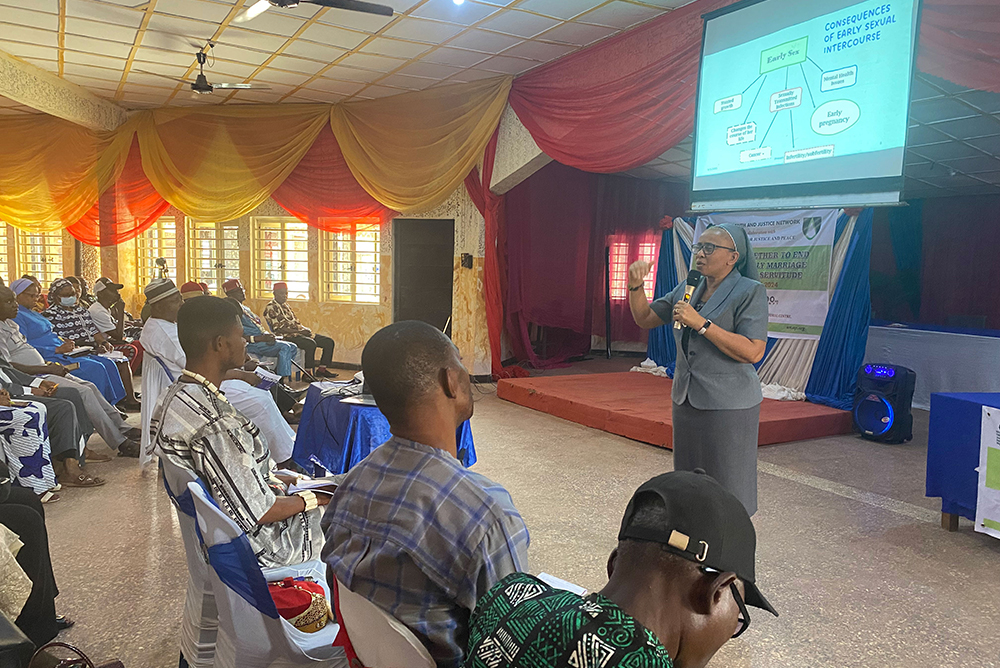
Medical Missionaries of Mary Sr. Elante Ekop speaking at the workshop in Abakaliki, Ebonyi State, Nigeria in January 2024. (Teresa Anyabuike)
This is one of the many stories of what happens to many children because of ignorance and lack of proper sensitization. Some girls are married off to settle debt in the family against the girls' wishes and her consent is not considered. Many of our young girls marry before they are mature and end up with Vesicovaginal fistula. This happens when they become pregnant and about to be delivered of their babies.
We went to the Ndihokete community in Izzi local government area of Ebonyi State. According to the community, they are in dire need of a secondary school. Most of their children were seen roaming about the community during our visit. I enquired the reason behind it, then was told that the primary school has no teachers, and when there is a teacher, the children will not be in school. I feel this is a case of inconsistency because neither the teachers or the children are regular in attending school. And there's no secondary school in the community. I also felt that no teacher would want to come to the community to teach because it's far from the town, where one could get some relief with some social amenities.
During one of our courtesy visits to the Ministry of Justice, Ebonyi State, we spoke to the solicitor-general and permanent secretary, Albert I. Aloha, who promised us that he will personally speak with the Ministry of Education for an effective solution to the root cause of not having a secondary school in the affected community. I believe that if his promise is fulfilled, the children will be in school rather than being taken to work as domestic servants at such a tender age and will be able to concentrate on their education. This will help all children so that future generations will not allow domestic servitude and early childhood marriage.
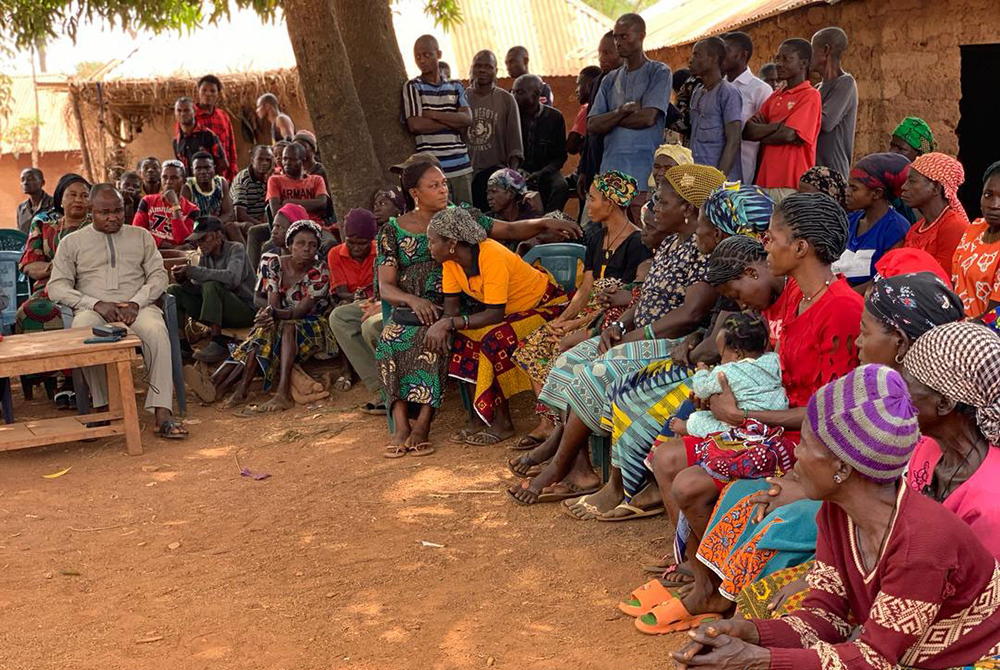
Young men and women of the Ndiboteke community. (Teresa Anyabuike)
